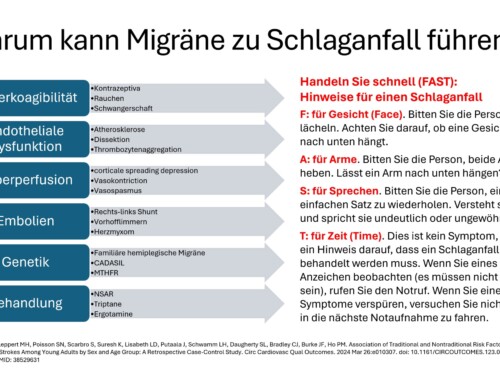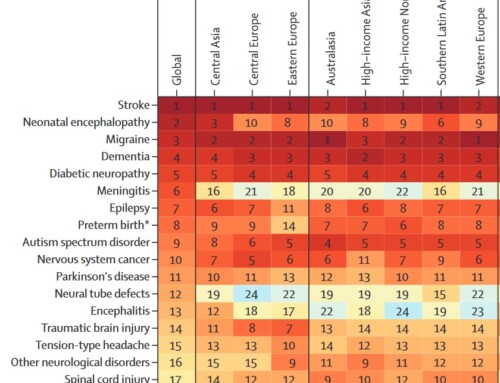Dopamine is a neurotransmitter. It transmits information between nerve cells. Dopamine plays an important role in the creation of feelings such as joy, happiness, but also fear and pain. The dopamine supply varies from person to person. When people concentrate, they react more emotionally and more intensely. Dopamine concentrations decrease with age, perhaps one reason why people appear calmer and wiser as they progress into adolescence - and perhaps also have fewer migraines?
In recent decades there has been increasing scientific evidence pointing to a significant role of dopamine in the development of migraines. Migraine sufferers are particularly sensitive to dopamine-like substances. These cause migraine precursor symptoms such as yawning, tiredness, nausea, vomiting and other migraine symptoms. Dopamine blockers, on the other hand, can be used successfully to treat migraines. Genes of the dopamine system also show a number of peculiarities in migraine patients. Dopamine receptors are found in large numbers in the area of the brain called the trigeminovascular system, where migraine pain is generated.
In a new large international genetic study, researchers from the University of Cologne, the University of New York and the Kiel Pain Clinic have found new evidence of a connection between migraines and two genes in the dopamine system. Dopamine beta-hydroxylase and the dopamine transporter gene play a central role. These findings are another important key to understanding the development of migraine and the development of new therapeutic methods.









Dear Dr.
Goebel and colleagues, I am pleased that I am not alone in my suspicion of a connection between an increase in dopamine levels and the onset of a migraine.
I only recently came across this connection based on my personal migraine diary and through introspection. But I don't want to share the details publicly here. Maybe a dopamine inhibitor could really help. Kind regards,
Claudia Schülke